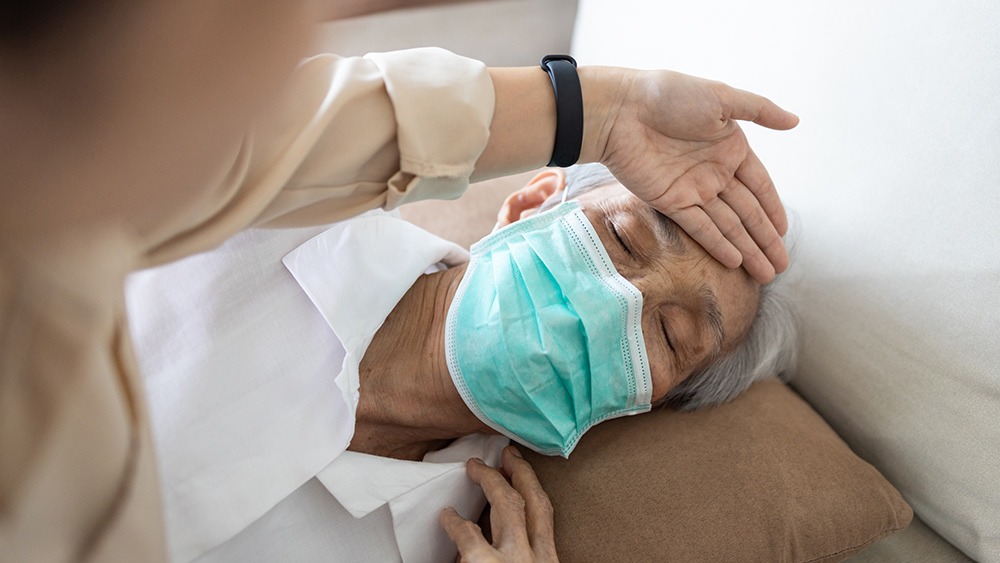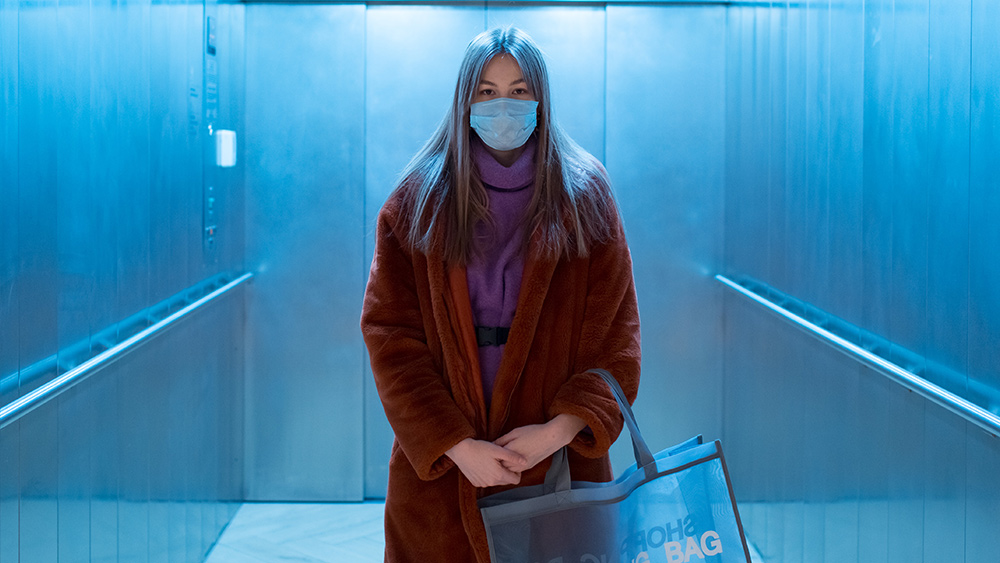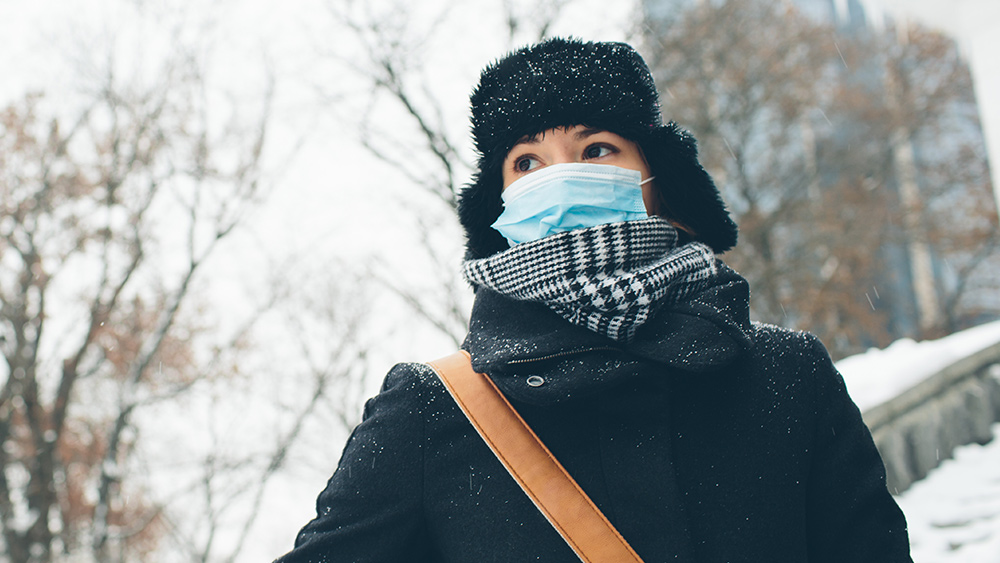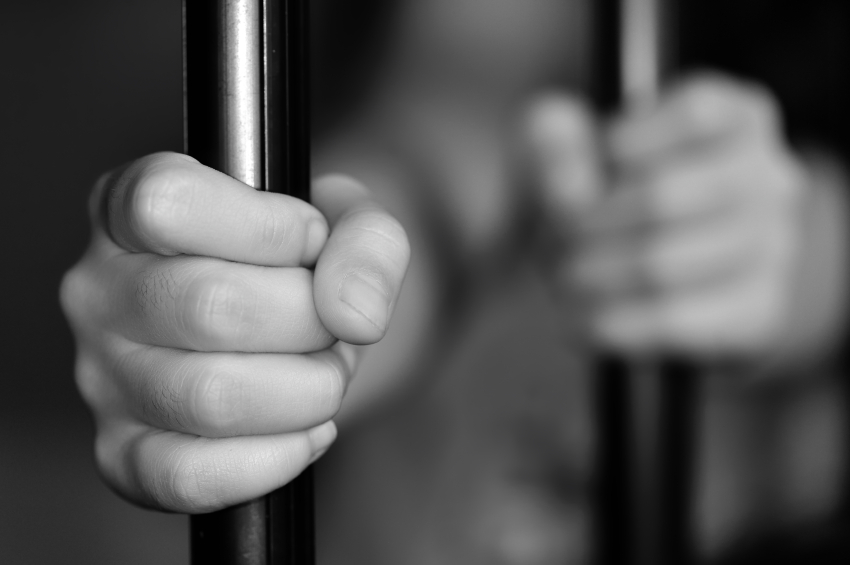Nursing home infections and deaths are still rising, even after coronavirus lockdown
04/03/2020 / By Franz Walker

Across the country, nursing homes have been in lockdown for weeks under federal orders to protect their elderly residents from the coronavirus. However, a wave of deadly outbreaks in these nursing homes nearly every day suggests these measures, such as a ban on visits and daily health screenings, either came too late or weren’t rigorous enough.
Outbreaks in states such as Maryland, Ohio, Tennessee and West Virginia have caused the death toll in the nation’s nursing homes to reach at least 450. These highlight a gap in their lockdown measures when it comes to the testing of doctors, nurses, aides and other workers — they aren’t properly tested and instead only get their temperatures taken or answer health questions. People who carry the coronavirus but are asymptomatic can still get through. (Related: Nursing home says testing no longer necessary because coronavirus has gone “endemic” in US population.)
“It’s still been like Swiss cheese with people coming in and out of there, and thus you’ve got these explosions in senior facilities,” said John BaRoss of Long Valley, New Jersey. He recently pulled his 85-year old mother out of an assisted-living facility out of fear of infection.
The coronavirus is slipping in through nursing home staff
An outbreak near Dayton, Ohio, killed eight people and infected about 50 more at a pair of nursing homes less than 10 miles apart. When they began scrutinizing medical specialists such as phlebotomists and respiratory therapists who worked both facilities, health officials found one worker who tested positive for COVID-19.
The same thing happened in Tennessee, where an outbreak resulted in 100 infections and four deaths at the Gallatin Center for Rehabilitation and Healing outside Nashville. Sumner County Mayor Anthony Holt blamed staff who came to work despite showing symptoms for COVID-19, exposing a lot of patients.
“Things got out of hand,” stated Holt. “Once employees became symptomatic, they should have asked them to go home immediately and called the health department. I don’t think that occurred.”
Meanwhile, Maryland Gov. Larry Hogan stated that an outbreak spread like “wildfire” at a Mount Airy nursing home, infecting 77 and killing five. The outbreak apparently began when an asymptomatic health worker made it past a temperature check screening and infected people at the facility.
More should have been done
In Morgantown, West Virginia, relatives of those at a nursing home in Sundale where 29 residents and staff have tested positive for the coronavirus have said that more should have been done to keep the virus out before federal restrictions took hold in March.
“The day before the shutdown, we just walked in wherever. There was no sign-in. There was nothing,” mentioned Courtney Templeton, whose 69-year-old mother was one of those who became infected with the virus.
Templeton also blamed the nursing home for not testing the residents fast enough and not keeping healthy ones separate from those who had just returned from a nearby hospital showing symptoms of COVID-19, including her mother’s roommate.
“She came back coughing and had a fever,” Templeton stated. Last week, Templeton was informed that both her mother and the roommate tested positive for the disease.
Things could get worse for those in nursing homes
The United States has about one million people living within around 15,000 nursing homes. For these people, the situation could get worse before it gets better.
Experts say that the crisis has only deepened a chronic staffing shortage because more workers are self-quarantining at home with their children. This is on top staff and patients still not getting tested as well as the protective gear such as masks being in short supply.
“It’s an emergency situation, and it’s just been totally neglected in all the national policy,” explained Charlene Harrington, a professor at the University of California, San Francisco and former state health official.
To add to all this, overcrowding in hospitals has some states considering forcing nursing homes to take patients who are recovering from COVID-19. This has raised fears that they could spread the virus to the residents inside.
New York has already issued a statewide advisory last week that forbids nursing homes from denying admission solely on whether a patient has a “confirmed or suspected diagnosis of COVID-19.” Looking to follow suit, California has told its nursing homes to make similar preparations.
Massachusetts, on the other hand, has announced plans to designate specific nursing homes as care centers for COVID-19 patients after one such facility, the Beaumont Rehabilitation and Skilled Nursing Center in Worcester County, offered to do so. Patients who have the disease and are stable but still need nursing care will be transferred to the facility this week, while residents who don’t have it will be transferred to other nursing homes in.
As part of the announcement, Matt Salmon, CEO of Salmon Health and Retirement, which owns the Beaumont nursing home, emphasized the need to keep COVID-19 patients out of nursing homes. “I can’t see any logical reason why a skilled nursing operator would be allowed to admit a COVID-positive resident into their building and increase the risk of that disease spreading throughout the entire community,” he said.
Sources include:
Tagged Under: assisted living facility, assisted-living, asymptomatic carrier, care center, coronavirus, covid-19, deaths, elderly, Fatalities, Flu, government, infections, infecton, maryland, nursing homes, ohio, outbreak, pandemic, priority, senior citizens, senior facilities, superbugs, Tennessee, testing, virus, West Virginia


















